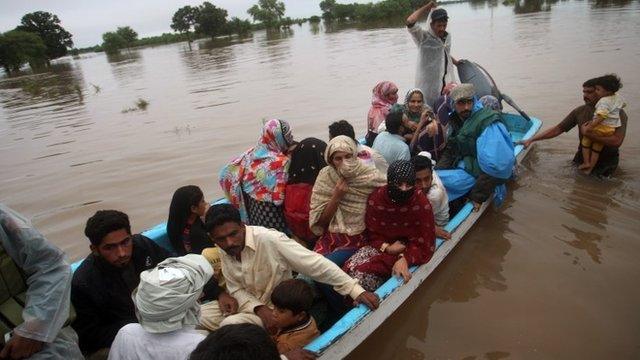Surviving the deadly Kashmir floods
- Published
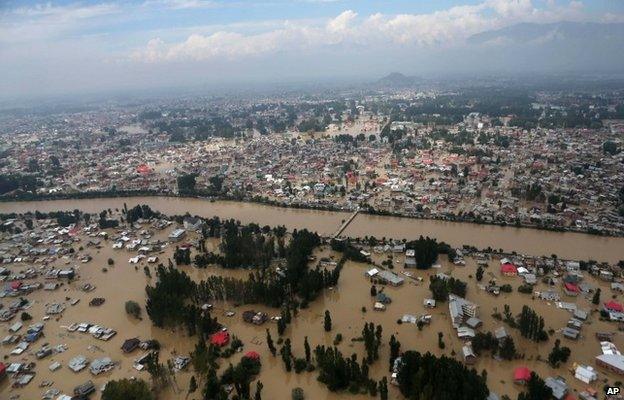
Large parts of Srinagar are still submerged in flood waters
For Merajuddin Dar and his four-member family, surviving the floods is like a rebirth.
Mr Dar, a government health worker, was among the thousands of people who were trapped in their homes as devastating floods swept Srinagar, the main city in Indian-administered Kashmir.
"Death is near us. Please save us," Mr Dar told me on Saturday when he called from his landline phone in Natipora neighbourhood in Srinagar.
I could hear sobs in the background and Mr Dar also wept bitterly. I just hung up.
I could not help him, as the government appeared to be in no position to carry out swift rescue operations.
Helpless
I felt helpless as I was getting frantic calls from friends and acquaintances to help people who were trapped after surging flood waters entered their homes.
Mr Dar climbed up to the attic of his two-storeyed house on Sunday as water levels rose. Like thousands of others in the city no one reached him until Tuesday when the rains eased and the water levels went down.
"It is just a miracle how we survived without anything. We had no food, no drinking water and no hope," said Mr Dar, who has now moved down to the second storey of his house. There is still 1.2-1.5m (4-5ft) of water outside his house.
"Nobody came to rescue us. We are still in water but now we may not die".
Like Mr Dar there were many others who had given up hopes of surviving after the flooding worsened.
On Saturday evening Fahmida Shah, a retired college principal, started climbing up her two-storey house with her husband and some bare belongings after flood waters gushed in from the nearby Jhelum river.
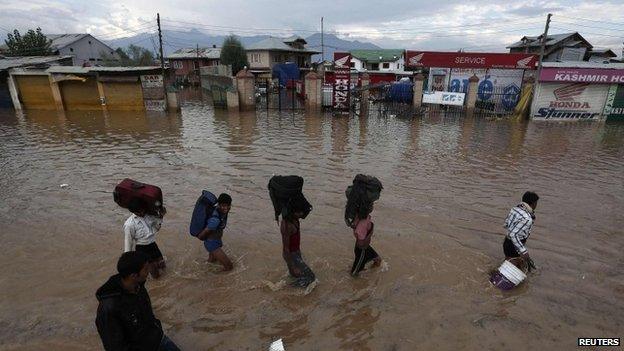
Many rescued people in Srinagar have taken shelter in relief camps
Finally they took refuge in the attic. There was no electricity. The phones were not working. Down on the street, sofas, almirahs and other things were "floating in the water just like toys".
"I collected some red-coloured cloth and kept waving it from the top of my house trying to attract the attention of rescue workers," Mr Shah recounted.
"We thought there is no chance of survival as food and water was getting exhausted. Somehow a chopper made an appearance on Monday and I was picked up along with other women in the area."
Ms Shah is now living in a friend's house in a different neighbourhood, and has to still hear from her husband - "I was told he was evacuated on Tuesday, but have no idea where he is."
Muneer Ahmad, a government worker, was trapped in his squat two-storey home in Jawahar Nagar.
He had moved his wife and children to a relatively unaffected area over the weekend after warnings that his neighbourhood would be flooded.
"I stayed back with my brother thinking that things would not get that bad," Mr Ahmed says.
"But the water gushed in and inundated both floors. We managed to break the ceiling with a hammer and squeezed ourselves through a hole onto the roof. We stayed there for three days with filth all around us. Luckily a helicopter spotted us on Tuesday and we were rescued."
"We are just lucky to be alive," says Mr Ahmed.
- Published10 September 2014
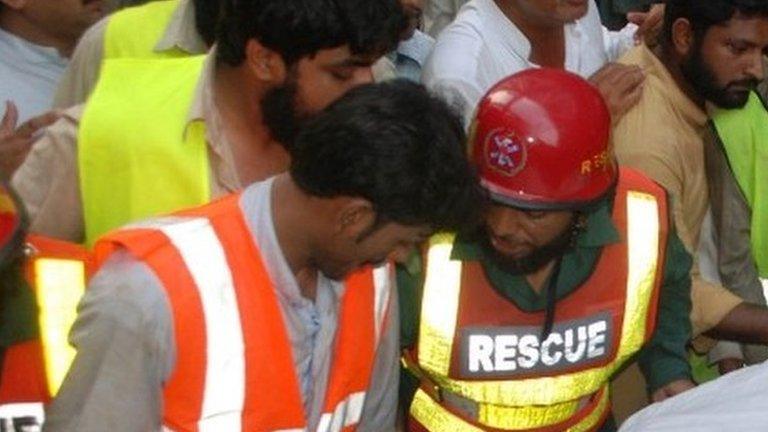
- Published9 September 2014
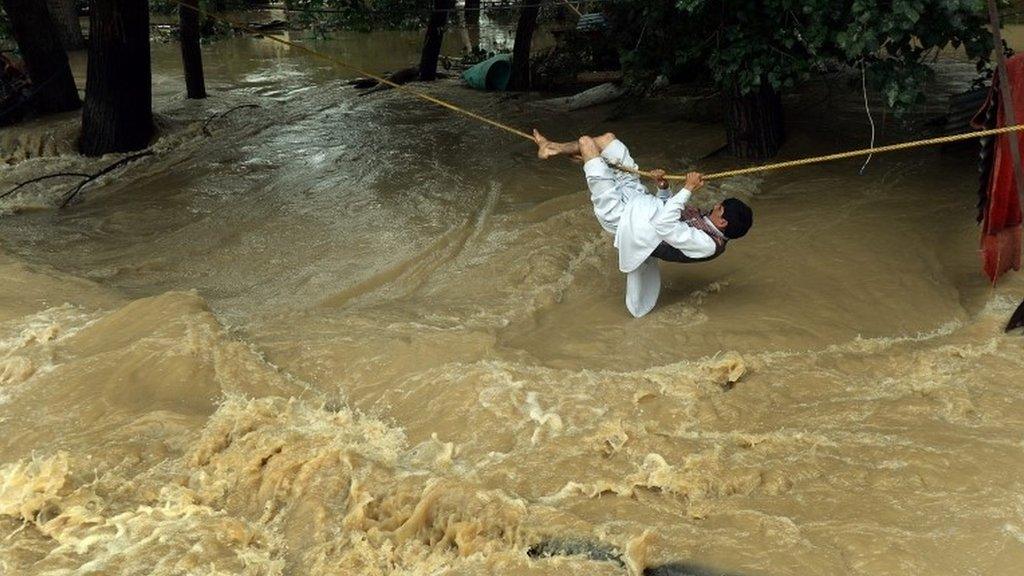
- Published9 September 2014
- Published6 September 2014
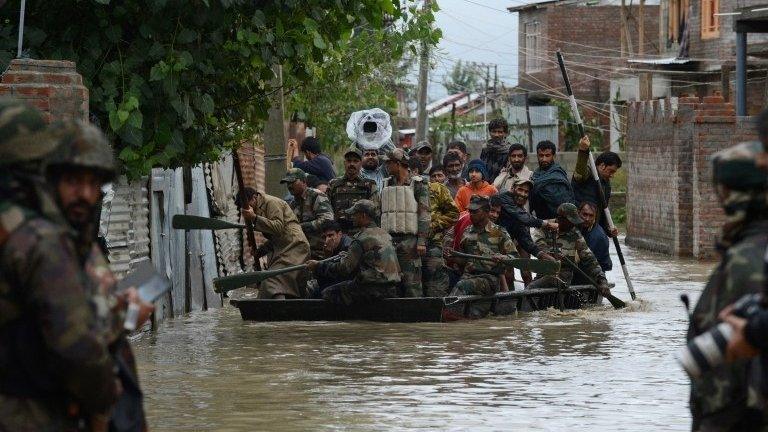
- Published7 September 2014
